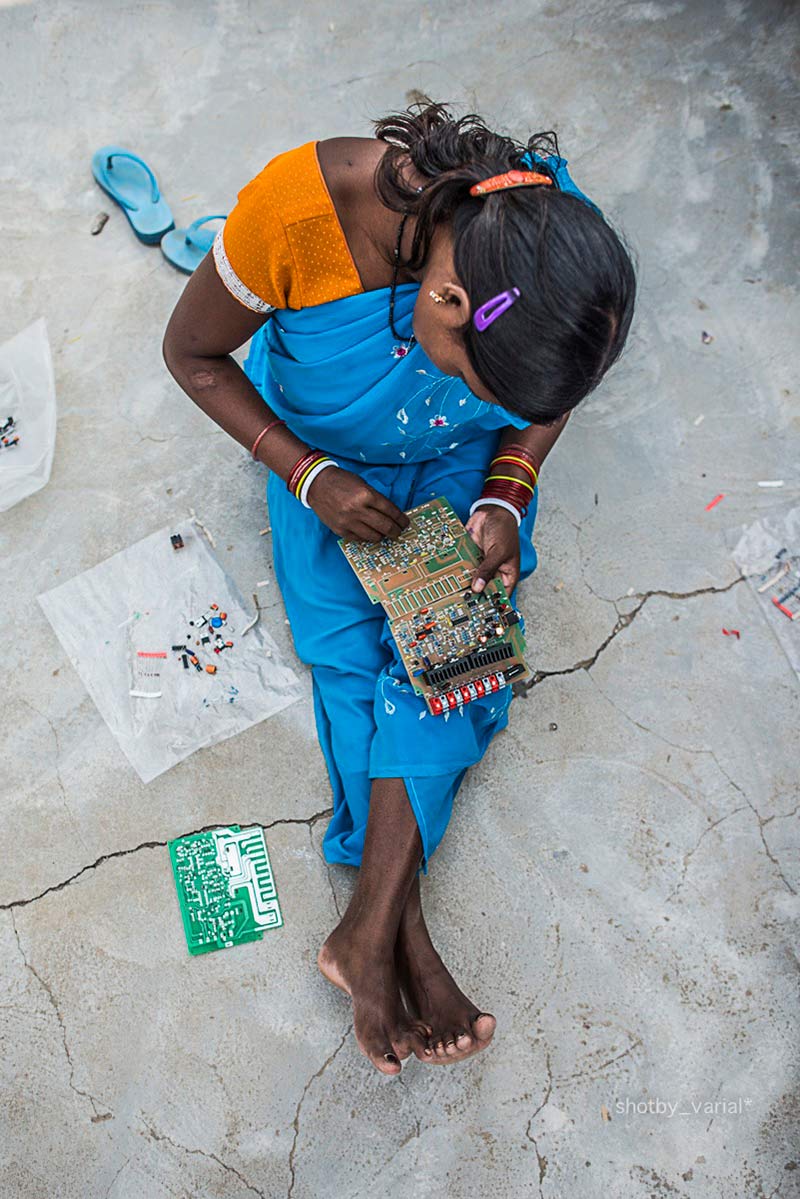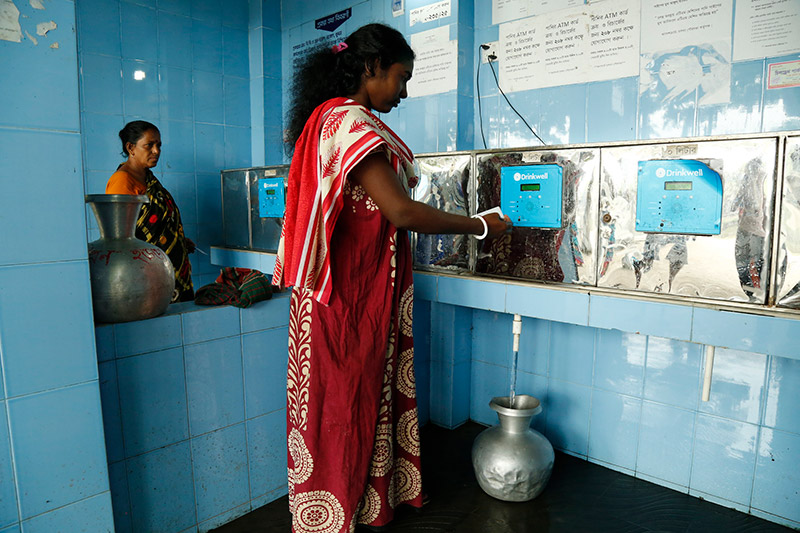Watch all five films competing in the ‘Transforming Society’ category at this year’s TVE Global Sustainability Film Awards.
If you’re looking to capture people’s attention, educate them, win hearts and minds and tell a unique story, film remains the most powerful communication tool. From short videos inspiring change to long-form broadcast documentaries giving the bigger picture, never is this more apparent than when it comes to addressing some of the world’s most serious environmental concerns.
Based in London, tve (Television for the Environment) is a charitable organisation that works with professional filmmakers, non-profit funders and corporate clients around the world to produce high-quality films that are then broadcast to influencers around the world.
The tve Global Sustainability Film Awards
Now in its seventh year, tve’s Global Sustainability Film Awards celebrate the very best films produced by companies and organisations looking to raise awareness of sustainability issues. This year’s awards competition attracted more than 40 different entries across five different award categories:
- Protecting the Environment
- Reshaping the Economy
- Transforming Society
- Sky: Beyond Plastic
- Global Digital Futures
Victoria Brooks is the Vice President of tve and chairs the shortlisting panel. “This year’s entries take us on a global tour of sustainable innovation and impact, from Bangladesh to Switzerland, Guatemala to Greece, Spain to Vietnam and more. All of them demonstrate brilliant creative and cutting-edge solutions to social and environmental challenges, the stories of which I hope will inspire true change.”
This year, Octopus Group is proudly sponsoring the ‘Transforming Society’ category. As Simon Rogerson points out: “At Octopus we believe that entrepreneurial ideas have the power to transform families, workplaces and communities, and the tve awards provide a great platform for sharing these ideas”.
Here are the five shortlisted films, the winner will be announced on 26 November, at the home of the British Academy of Film and Television Arts:
Iceland completes ring of electric vehicle chargers circling entire country
As an island nation, Iceland has traditionally relied heavily on foreign oil imports for its energy. But today four-fifths of Iceland’s energy is generated from non-fossil resources, with hydropower and geothermal energy leading the way.
Transportation is still very fossil-fuel dependent, but the transition to electric vehicles is well underway. The Iceland government has introduced a state-financed incentive program designed to increase the use of electric vehicles. Right now, there are more than 6,000 electric vehicles in Iceland, compared to just 90 in 2014.
Technology designed by ABB has created a ring of electric vehicle charging stations throughout Iceland, bringing the country a step closer to complete energy independence. Each additional ABB fast-charging station that goes into use makes electric cars more valuable and feasible for everyone else.
Catwalk to creation
Award-winning duo Charney Magri and Ramzi Moutran are the creative team behind the documentary Catwalk to creation, which follows the reverse journey of two sustainable garments.
Charney is the co-founder of Fashion 4 Change, and has worked in fashion and fashion photography for almost 20 years. We asked Charney to tell us about the inspiration behind the documentary series.
“There’s been a massive change in the public awareness of the harmful effects of plastics, and a widespread understanding that we need to look at alternative materials. But while most people see the problem caused by plastic packaging, it’s less widely known that 83% of all of our waters contain plastic microfibres, and one-third of this plastic microfibre contamination is said to come from the fashion industry, due to man-made fabrics such as polyester and nylon.
“With this docu-series, what we’re trying to do is to raise awareness by giving people bite-size chunks of information. We want to help make this issue part of everyday conversations, so that consumers can feel more empowered in their choices and make a change.”
Flip the switch – a documentary

Produced by Hogan Lovells and Barefoot College, Flip the switch – a documentary looks at the work done by Barefoot College across almost 100 countries. Its work with women addresses many of the United Nation’s Sustainable Development Goals (SDGs), including efforts to reduce poverty alleviation, climate change and gender inequality.
Debra Hay is the Corporate Responsibility Manager at Hogan Lovells. She told us: “Too often business objectives are seen in competition with social impact and community development, but we don’t believe it needs to be that way. We believe business can be a force for good.”
The film uses the power of storytelling to share impactful collaborations focused on making a better world for all:
- Empowering women and girls globally
- Inspiring multi-sector partnerships as a critical collaborative approach to systemic change
- Combating ultra-poverty by supporting women in the role as ‘change makers’
Debra adds: “The stories of the incredible Barefoot College Solar Mamas deserve to be heard. The film follows their journeys, but more than that, it gives us the opportunity to illustrate what can be achieved when the private sector and social enterprises/non-government organisations come together in shared value partnerships. This film is a call to action to all corporates to join those of us who are already collaborating across sectors to the benefit of both business and society.”
Rising seas – shrinking water sources

Image by WaterAid/Abir Abdullah
Produced by HSBC and WaterAid, Rising seas – shrinking water sources showcases a number of innovative solutions for climate-resilient water access to communities and businesses in the Dacope region, a coastal area of Bangladesh where people are suffering from the impacts of climate change.
Neal Wallace, one of the producers of the film, told us about the inspiration behind it: “Coastal Bangladesh is a very climate-vulnerable area. Rising seas are making water sources undrinkable. It was important for us to highlight how something as simple as access to clean water can change not only people’s health, but their economic prospects.
“WaterAid’s work with local partners to install desalination plants, means people like Josna in the film can kick-start their business. We wanted to tell this story through one person, getting across the bigger issues of climate change and water scarcity and the impacts they have on livelihoods. It was also important for us to show the business benefits, which we did through Josna’s tea stall and tailoring shop.”
The Unseen Ocean
One in five children in Britain has never seen or paddled in the sea. Not only are they missing out on the sense of joy and wonder that the sea can inspire, but without knowing the oceans – and feeling connected to them – they are far less likely to protect them.
Produced by Volvo and Sky Atlantic, The Unseen Ocean focuses on Tom Franklin, a primary school teacher who also runs City Kids Surfing, a programme that teaches children to swim and surf, and to essentially fall in love with the ocean. The campaign is part of Volvo’s sustainability programme, which has seen the car manufacturer introduce a number of sustainability targets and commitments, such as ensuring that from 2025, at least 25% of the plastics in every newly-launched Volvo car will be made from recycled materials.
